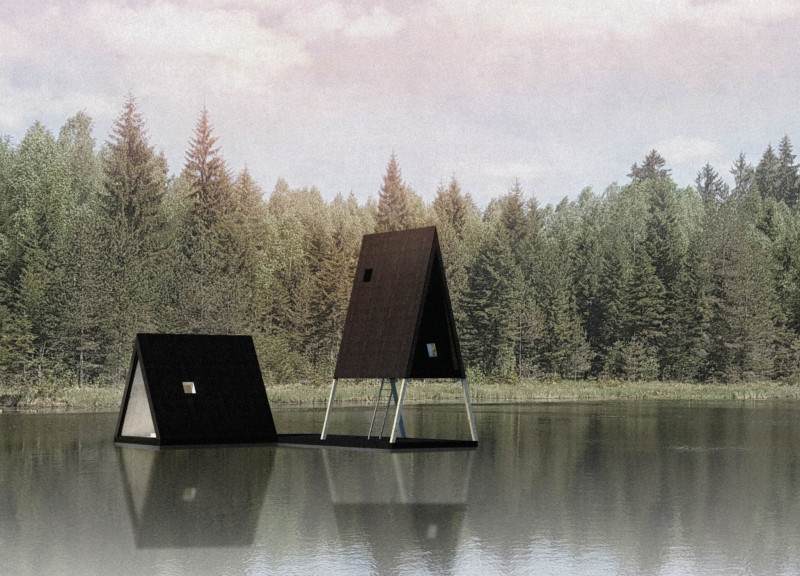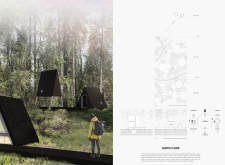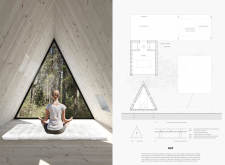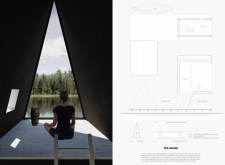5 key facts about this project
Space and Structure
The project consists of multiple floating huts and a communal Tea House, all supported by aluminum pontoons that allow them to rest on the water's surface. Each hut serves a specific function, including sleeping accommodations and storage, while the Tea House acts as a social gathering space. The architectural design prioritizes accessibility, with raised walkways connecting the structures and facilitating movement through the natural environment. The layout is intentionally organized to provide privacy and solitude while maintaining opportunities for community interaction.
Materiality and Environmental Considerations
Sustainability drives the choice of materials used in "Floating Worlds." Aluminum, selected for its lightweight and durable properties, supports the floating structures. Laminated timber is utilized for the construction of the huts, offering both aesthetic appeal and structural integrity. Wooden decking complements the pathways, reinforcing the natural atmosphere and providing practical navigation. Expansive glass windows enhance the connection between indoor and outdoor spaces, allowing natural light to penetrate the interiors and promoting energy efficiency.
Innovative Design Approaches
What sets "Floating Worlds" apart from conventional retreat designs is its thoughtful integration of nature and focus on user experience. The project promotes interaction with the surrounding landscape while also allowing for personal reflection. The modular design of the huts allows for adaptability, catering to different user needs throughout various seasons. The Supply Loop provides a framework for logistical support and ensures that the site operates sustainably, incorporating eco-friendly practices.
This project serves as an important case study in contemporary architecture, emphasizing the significance of harmonizing built forms with their natural context. To explore the detailed architectural plans, sections, and insights into design decisions, please refer to the full project presentation for a comprehensive understanding of its aspects and implications.


























